
Brigitte Mira
Nacimiento : 1910-04-20, Hamburg, Germany
Muerte : 2005-03-08
Historia
From Wikipedia, the free encyclopedia.
Brigitte Mira (20 April 1910 – 8 March 2005) was a German actress. She worked in both theater and film, often with Rainer Werner Fassbinder.
Brigitte Mira's mother was German and her father was Jewish Russian. During the Nazi dictatorship, Mira took part in the propaganda series Liese und Miese. She played Miese (germ. bad one)--the bad role model according to Nazi ideology that listened to enemy radio stations and stockpiled rationed food. But her acting skills turned the "bad" character she portrayed into a likeable one. The series was soon cancelled for being counter productive. The propaganda directors did not know that Mira was half-Jewish. Even though she insisted on her naivete as a young woman and the fact she had to hide her identity, she was criticized later by some for taking part in these ads at all.
Even if Mira was born in Hamburg she early on moved to Berlin and through her TV work came to embody the typical Berlin sense of humor.
Notable performances include Emmi Kurowski in Fear Eats the Soul (1974), a role for which she won a German Film Award. In the 1980s Mira achieved another big success with the television series Drei Damen vom Grill.
Description above from the Wikipedia article Brigitte Mira, licensed under CC-BY-SA, full list of contributors on Wikipedia.
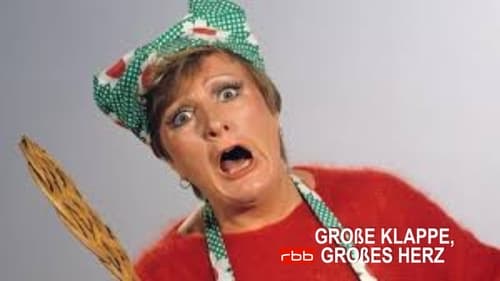
Gast

Emmi Kurowski (archive footage)
Mixing scenes of Douglas Sirk's All That Heaven Allows and Fassbinder's Ali: Fear Eats the Soul, François Ozon creates a new film about cinephilic contamination.

herself

Emmi
Shot with striking immediacy by a subjective camera, “Angst isst Seele auf” assumes the point of view of a black actor in Germany dealing with racist abuse as he prepares to appear in a play based on Fassbinder’s film, about the taboo relationship between an older German woman and an Arab man. Sharing the same lead actress (Brigitte Mira), cinematographer (Jürgen Jürges), and editor (Thea Eymèsz) as in Rainer Werner Fassbinder’s 1974 Film “Angst essen Seele auf”, these twin works offer a searing indictment of prejudice within German society.
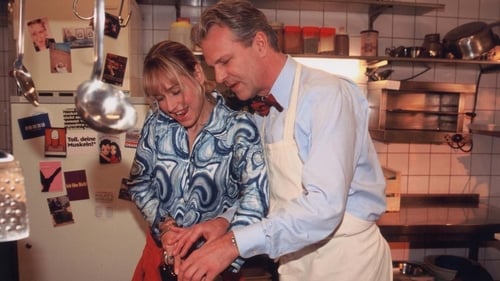
Olga von Reichenbach
The Berlin Observatory is facing the financial end. Against the will of the renowned physicist Robert von Reichenbach, the astrologer Lena Moosbach is set, which quickly establishes itself as a crowd puller and fills the empty cash registers of the planetarium. Worried about the scientific reputation of the observatory, Robert spat first poison and bile against the new colleague. But although the sober astronomer rejects horoscopes with the deepest conviction, he falls in love with the charming astrologer. However, when it turns out that she just feigned her Ph.D., Robert feels betrayed

Herself
An essay film in which filmmaker Rosa von Praunheim interviews "the willing victims of Rainer Werner Fassbinder."

Käthe Mühlmann

Self
"It must schwing!" was the motto of Alfred Lion and Francis Wolff, two German Jewish immigrants who in 1939 set up Blue Note Records, the jazz label that was home to such greats as Miles Davis, John Coltrane, Herbie Hancock, Thelonious Monk, Art Blakey, Dexter Gordon and Sonny Rollins. Blue Note, the most successful movie ever made about jazz, is a testimony to the passion and vision of these two men and certainly swings like the propulsive sounds that made their label so famous.

Mieterin
Once upon a time very much alike the twenties in Germany, a little town is frightened to death by an uncaught child murderer. Since somebody has to be blamed the townspeople turn against an inconspicious policeman, a family-man who becomes suspected of the crime and therefore loses his job. Strangely enough, the only work he can find is to distribute candy on children, dressed up as clown. When a bunch of kiddies, including his own son who doesn't recognize the father due to the masquerade, plays a nasty trick to him, things turn really ugly...

Queen Mum
The British parliament has decided to get rid of the royal family. All of them have to leave the county and so they move to Germany, where they want to live by their distant relatives, the Bettenberg family. But these are not amused about their snobbish visitors, which all want to reside in their little house without doing any work to earn their living.

Frau im 'House of Usher'

Doris

Frau 1

Mrs. Blondell

Old Lou

Oma Kaminski

A crime comedy directed by Franz Josef Gottlieb.

Mrs. Kluge
A comedy directed by Franz Josef Gottlieb.

Vicky Fendrich
A movie directed by Franz Josef Gottlieb.

Mrs. Pecari

Barfrau Erna

Toilettenfrau
An East Berlin woman falls in love with a Swiss cook.

Gemüsefrau

Mrs. Niendorf
A comedy directed by Wolf Gremm.

Frau Willmsen

Frau Meyerdierks

Frau Friedrichs

Berta
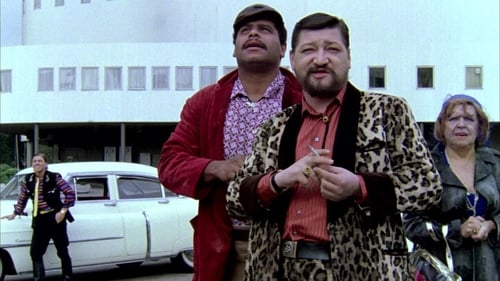
Personaldirektorin
In a totalitarian society of the future, in which the government controls all facets of the media, a homicide detective investigates a string of bombings, and finds out more than he bargained for.

Helen Hobart

Gerti

Garderobiere

Martha

Frau Mürbes
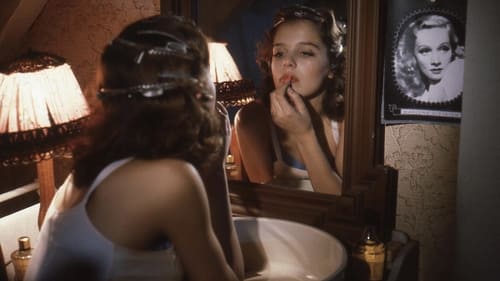
Denunziantin
The Political drama shows the denunciation and persecution of the 19-year-old Sanne in the Nazi state. After she falls in love with her cousin, Sanne is betrayed by her jealous aunt to the Gestapo.
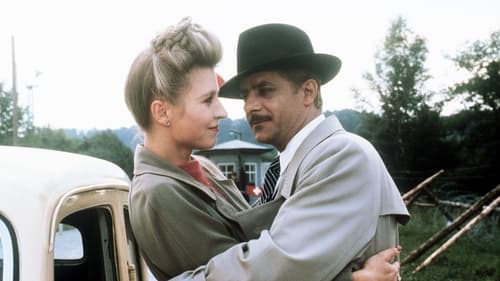
Nachbarin
Lili Marleen es la historia de una canción que, durante la Segunda Guerra Mundial, llegó a convertirse en un himno, primero del nazismo y después del bando aliado. En 1936, Norbert Schultze, un pianista de cabaret, le puso música a la letra que había escrito años atrás un soldado alemán. Tres años más tarde la grabó en disco una bella pero mediocre cantante, Lale Andersen, que consiguió un éxito y una popularidad tales que los servicios de propaganda del Tercer Reich decidieron hacer suya la canción.

Frau Hohfeld
Basada en la novela sobre Jacob Fabian, un publicista liberal de Berlin que fue testigo del desmoronamiento de la sociedad alemana durante los años 30.

Frau Kulicke

Wanda Staudinger

Simons Mutter
A middle-aged man's doubts about himself transform themselves into paranoia about his younger wife's behavior in this psychological thriller. The husband plants listening devices around their apartment and eventually drives the heretofore innocent woman into the arms of one of his co-workers.

Minni - Tante Germinats

Mutter Link

Meg

When Hitler watches Marlene Dietrich in a movie, he falls in love with her. He persuades her to come back to Germany to be with him, but upon her arrival she constantly insults and provokes him until he eventually, on her command, bites the carpet to bits.

Hauswartfrau
The gentle inhabitants of a quaint Berlin apartment house, damaged by the Second World War but possessing an elegance of its own, love the place where they live, with its motto Liebe das Leben-Lebe das Lieben (Love Living, Live Loving) emblazoned above the door. Their love for it only increases when they learn that it is threatened by a bank redevelopment project. Among the apartment-dwellers are an elderly couple (Brigitte Mira and Erhardt Dhein) who have toured the world together.

Kast
Ruleta China es una parábola acerca del mundo burgués, sus ritos y sus mentiras. Ángela es una adolescente inválida, hija de padres ricos y liberales; pero su odio hacia ellos la lleva a tenderles una trampa para que un fin de semana coincidan en su casa de campo con sus respectivos amantes.
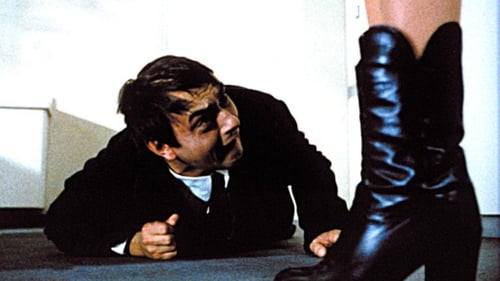
Walters Mutter
Walter, un poeta anarquista alemán, tiene dificultades económicas, pero su editor se niega a darle un adelanto. Entonces no tendrá más remedio que buscar otros modos de ganarse la vida.

Oma Wuttke
Dirigida por Alfred Vohrer y escrita por Jürgen Lodemann y Werner P. Zibaso, "Anita Drogemoller y el resto del Ruhr" es una película criminal de 1976. Monique van de Ven y Harald Leipnitz protagonizan, junto a Helga Anders, Reiner Schöne, Brigitte Mira y Dirk Dautzenberg.

Frau Häberle
When they start losing family members and neighbors due to WWII and the Nazi government's policies, a quiet married couple becomes disillusioned and begins spreading leaflets against the government - a crime punishable by death.
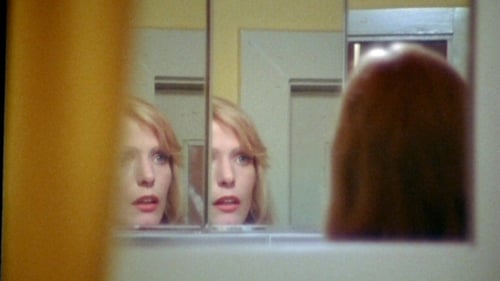
Mutter
Margot Staudte es un ama de casa que quiere a su marido Kurt y a su hija Bibi y vive rodeada de comodidades. Pero, hacia el final de su segundo embarazo, se apodera de ella una angustia creciente. Después del parto, las drogas y el alcohol la calman aparentemente, pero su terror no disminuye.
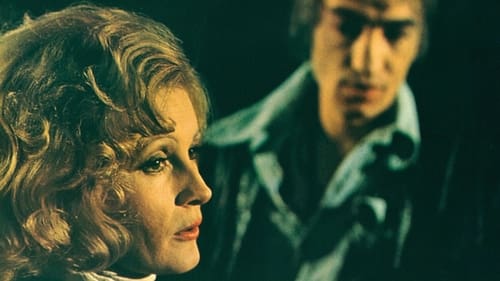
Emma Küsters
Un obrero de una planta química, inesperadamente, en un acto de rebelión, asesina al hijo de su jefe, suicidándose a continuación. Este hecho transformará por completo la vida de su mujer (Emma Küsters) quien, con la falta de apoyo que recibe de un hijo (dominado por su mujer) y de una hija (que sólo busca su propia gloria), iniciará una odisea personal en la que tendrá que enfrentarse a manipulaciones mediáticas e ideólogos políticos que buscan utilizarla para sus propios fines, ignorando la única razón que a ella le mueve: defender y devolver la dignidad a la memoria de su marido.

Betty Hopfen
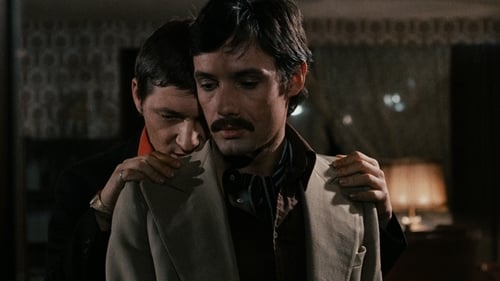
Shopkeeper #2
Franz Biberkopf es un joven homosexual, vulgar, ingenuo y bonachón que, después de trabajar como "Fox, la cabeza parlante" en una feria, gana medio millón de marcos en la lotería, lo que le permite frecuentar círculos gays más selectos. En este exquisito ambiente se enamora de Eugen, hijo de un empresario que posee una imprenta al borde de la bancarrota. Eugen, que ha dejado a su amante, inicia con Franz una relación interesada: en varias ocasiones le saca dinero para la empresa paterna, le hace comprar el piso y los muebles que compartirán, e intenta incluso corregirle sus toscos modales tan alejados de la educación burguesa. Además, programa un viaje a Marrakech.

Herself
A pseudo variety show about the Aufbau-Era, the time of the German 'economic miracle'. Brigitte Mira recounts her four husbands through song and joke, on an series of artificial sets.

Gloria Miranda

Haushälterin Käthe
Alemania, principios del siglo XIX. Kaspar es un enigmático muchacho que ha pasado toda la vida encerrado y aislado en una cueva: no conoce, pues, el lenguaje ni tiene capacidad para relacionarse con los demás. Cuando, en 1828, alguien lo abandona en Nuremberg con una carta para las autoridades locales, se convierte primero en una especie de atracción de feria y después en una curiosidad científica y social.
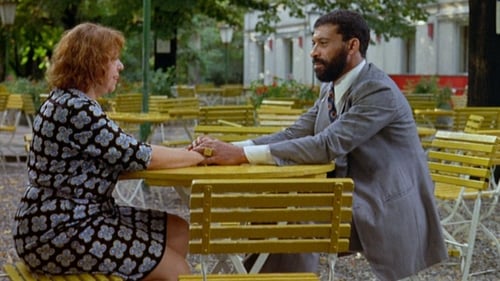
Emmi Kurowski
En un café al que acuden los trabajadores inmigrantes, Emmi Kurowski, una viuda de unos sesenta años, conoce a Salem, un marroquí treintañero. Inducido por la dueña del bar, Salem invita a Emmi a bailar, hablan, la acompaña a casa y, al día siguiente, se queda a vivir con ella. Esta relación provoca un gran escándalo, y las vecinas visitan al propietario del edificio para denunciar a Emmi.

An African-American GI retires from the US Army in West Berlin to live with his (white) girlfriend, who already has a baby with another black man. After an argument with her family, she deserts him as well. Despite finding a job and a new place to live, he keeps running into racism, which also manifests itself in sexual intimidation.
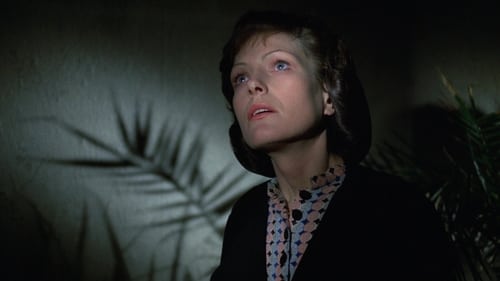
Louise Engel
En 1925, en Alemania, Fritz Haarmann, es un ladrón homosexual y furtivo, con una licencia especial de la policía. Vende carne en el mercado negro. También mata a los niños y jóvenes, bebe su sangre, cose sus cuerpos y tira sus partes en un río. Ciertamente, lo que vende en el mercado negro es carne humana... Nueva reedición de la historia de "El Vampiro de Düsseldorf", acentuando en este caso su trasfondo de crítica social y explicitando sus elementos sádicos, homosexuales y canibalescos.

Frau Löffler

Frau Schmolke

Hauswirtin Bauer

Wirtin

Mrs. Scholler

Rose Schuh
West German crime film directed by Rolf Olsen and starring Curd Jürgens, Andrea Rau and Corny Collins. It is set in the red-light district of St. Pauli in Hamburg.

Tante Wilhelmine
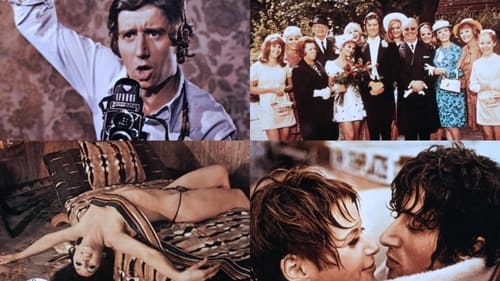
Mrs. Bütow

Molly Zwitscherini

Erste Amme

Molly Zwitscherini

Sängerin

Dolly Tate

Frau Pusebach

Thea
Saleswoman Jenny is crazy about the painter Jack. But Jack does not want to marry, even though he loves Jenny passionately. So Jenny looks elsewhere to find the right man. She marries twice, but always ends up back with Jack and gives herself to him with no attachments. Will Jack and Jenny find true love? Of course!

Madame Helene

Köchin

Frau Sommer

Mama

Frau Ohl
Cautionary drama, with vigorous attack on Germany's laws governing abortion.

Clementine Duquenoy

Mechthilde von Kiefernspeck
1838: Fritz Jüterbog and Ottilie von Henkeshofen love each other, but the difference in status is too great for Ottilie's parents to give their consent to a marriage. And so Fritz sets off for America and returns from there 20 years later as a made man to ask for Ottilie's hand in marriage again. In the meantime, however, Ottilie - believing that Fritz had long since forgotten her - is married in a manner befitting her status, but very unhappily. Fritz, who is highly successful as an entrepreneur, is elevated to hereditary nobility because of his great services to the fatherland. It is too late for a union with Ottilie, but despite the years that pass, the two cannot forget their love. 75 years later, Fritz and Ottilie have died in the meantime, their grandchildren Fred and Tilla meet and fall in love.

Mutter Reitner, Strafgefangene

Marie Ducrot

Lady Schocker, Journalistin

Madame Dupont

Frau Hinze

Sophia

Madame Pillar

Tante Theresa
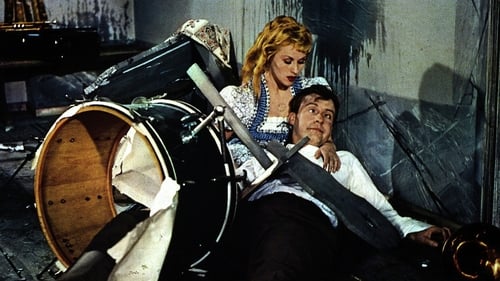
Frau Knax

Frau Mertens
The chorus girl Caterina Duval gets the chance of her life when hired as stand-in of a famous star. On the opening night Catarina is singing, dancing and stepping into the hearts of the audience.

Dirne
Long before he played the corpulent Goldfinger, German actor Gert Froebe was a scarecrow-skinny comedian. In Berliner Ballade, Froebe makes his screen debut as Otto, a feckless Everyman who tries to adjust to the postwar travails of his defeated nation. Stymied by black-market profiteers and government bureaucrats, Otto begins fantasizing about a happier life at the end of that ever-elusive rainbow. Director R. A. Stemmle doesn't have to strive for pathos: he merely places his gangly star amidst the ruins of a bombed-out Berlin, and the point is made for him. Filmed in 1948, Berliner Ballade was later released in the U.S. as The Berliner.




















